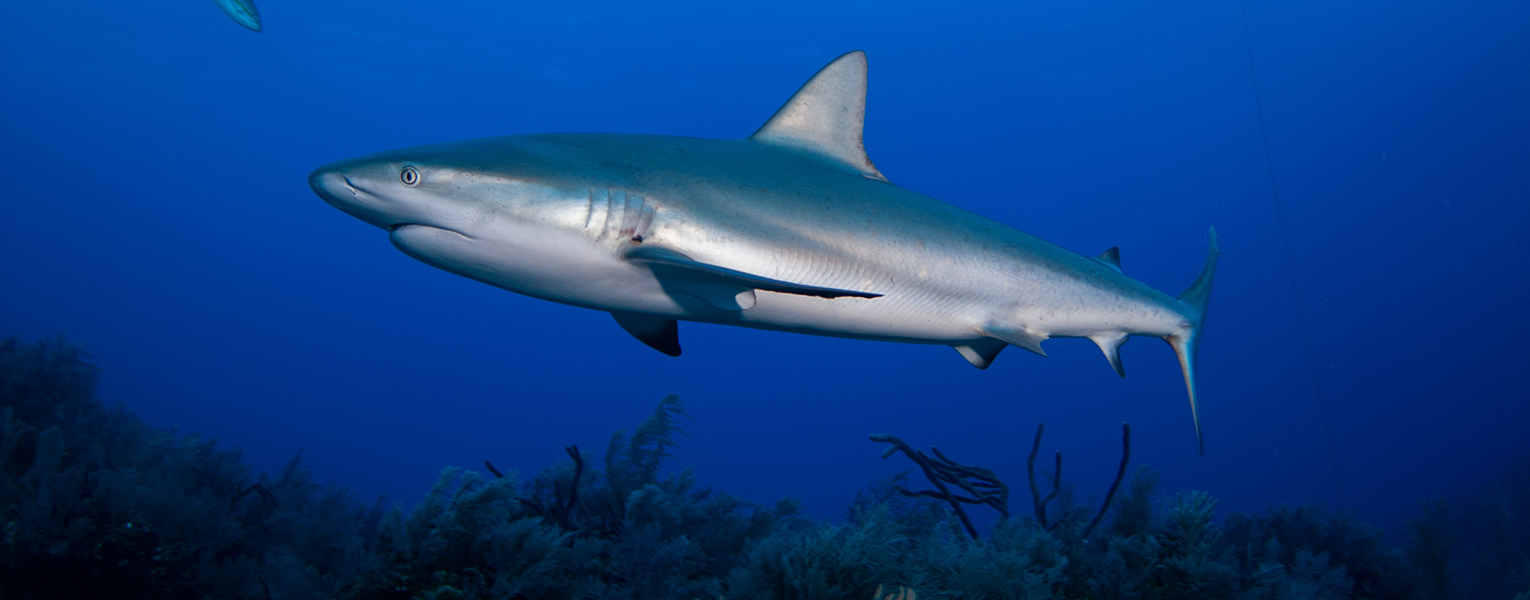11/23/2022
Shark Awareness Day 2022
FAU Scientists Study Shark Swimming Behavior
The sleek, torpedo-shaped Caribbean reef shark has an unexpected trait: it also rests on the seafloor. In a new study, published in the Journal of Fish Biology, two FAU shark scientists decided to study more about their swimming behavior, to figure out how and why this might be possible.
Reef sharks are one of the most common sharks throughout their range in the Caribbean, spanning from South Florida south to Brazil, yet there isn’t much known about their biology. “It is surprising how little information was out there in the literature about this species. It is fairly common, but no one seems to do much with them. Anything that we can contribute is useful to understand their biology,” said Stephen Kajiura, Ph.D., a professor in the Charles E. Schmidt College of Science and co-author of the new study, along with associate professor Marianne Porter, Ph.D, also of the College of Science.
Caribbean reef sharks belong to the genus Carcharhinus, a group of sharks that includes 34 other species, such as the bull shark, spinner shark and blacktip shark, all of which would be considered fast swimmers. You wouldn’t find them resting motionless, Kajiura said. Yet, the two researchers found that this island species takes a more laid-back approach to swimming. “I thought it was surprising — I assumed that since this species is so similar to the blacktip that they would be pretty close to the same,” Kajiura said.
To analyze how reef sharks swim, the duo placed an underwater video camera attached to a dive weight secured on the seafloor at a popular scuba diving spot in the Bahamas to see sharks. The position of the camera provided a silhouetted view of the sharks against the surface. Then, they analyzed how fast the individuals swam, along with characteristics of their swimming, such as how fast they beat their tails and moved their head back-and-forth, called yaw, and the distance of those movements, or amplitude. They compared their results to blacktip sharks.
Overall, Kajiura and Porter discovered the reef sharks took a different approach to swimming compared to the blacktips. The reef sharks swam slower, moved their heads less, and swished their tail less. “Despite being slower they are still efficient swimmers,” Kajiura said.
For both scientists, this study elucidates interesting relationships between swimming speed, tail beat frequency and amplitude and that different ways exist to achieve efficient swimming. Additionally, just because the sharks look generally the same, doesn’t mean that they do the same thing, like blacktips versus reef sharks, Kajiura said.
Sharks are in decline, threatened globally from overfishing, according to the International Union for Conservation of Nature shark specialist group “We can make better management and conservation decisions when we do have a comprehensive understanding of the basic biology for any particular species,” Porter said.
If you would like more information, please contact us at dorcommunications@fau.edu.
